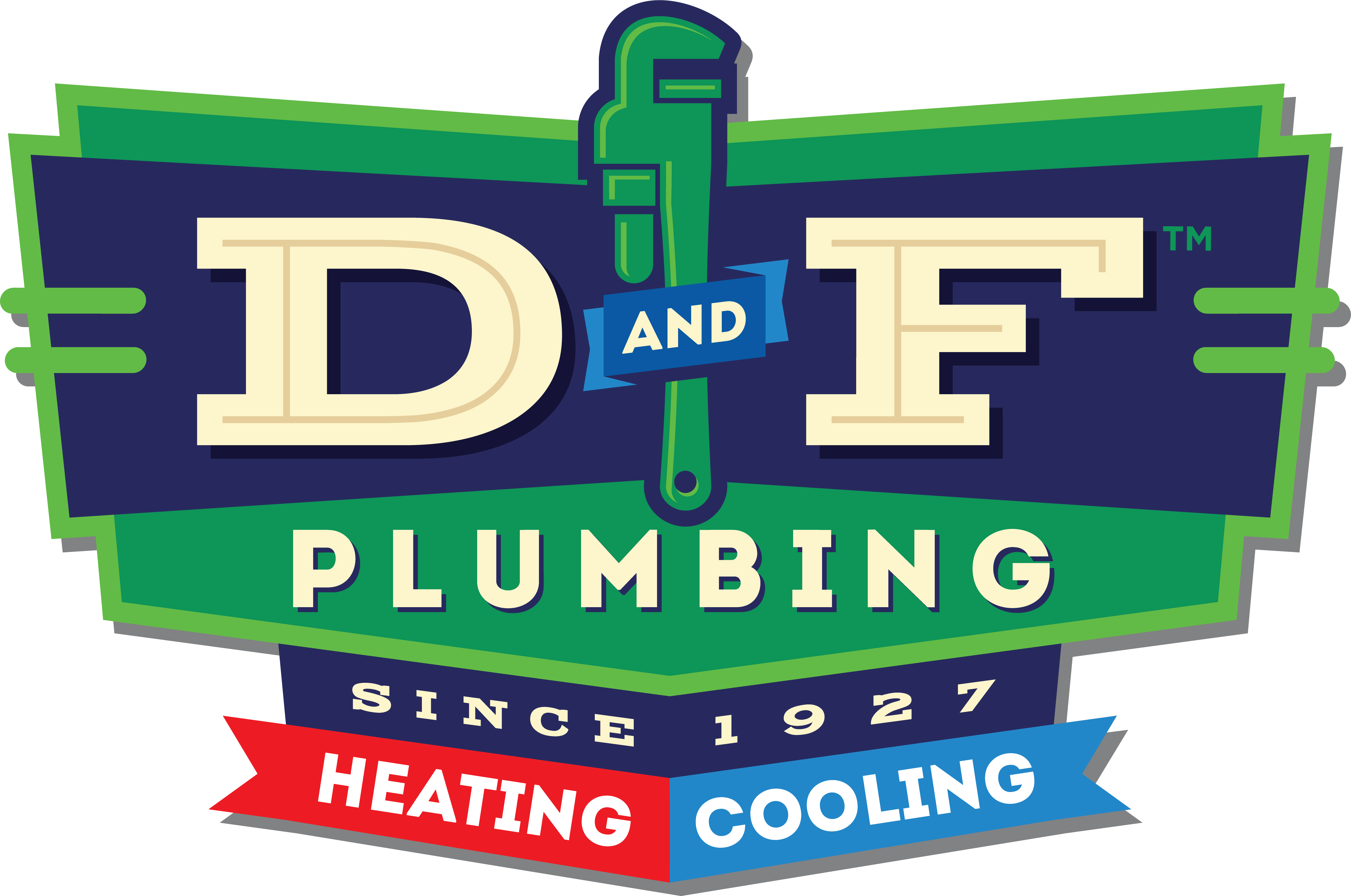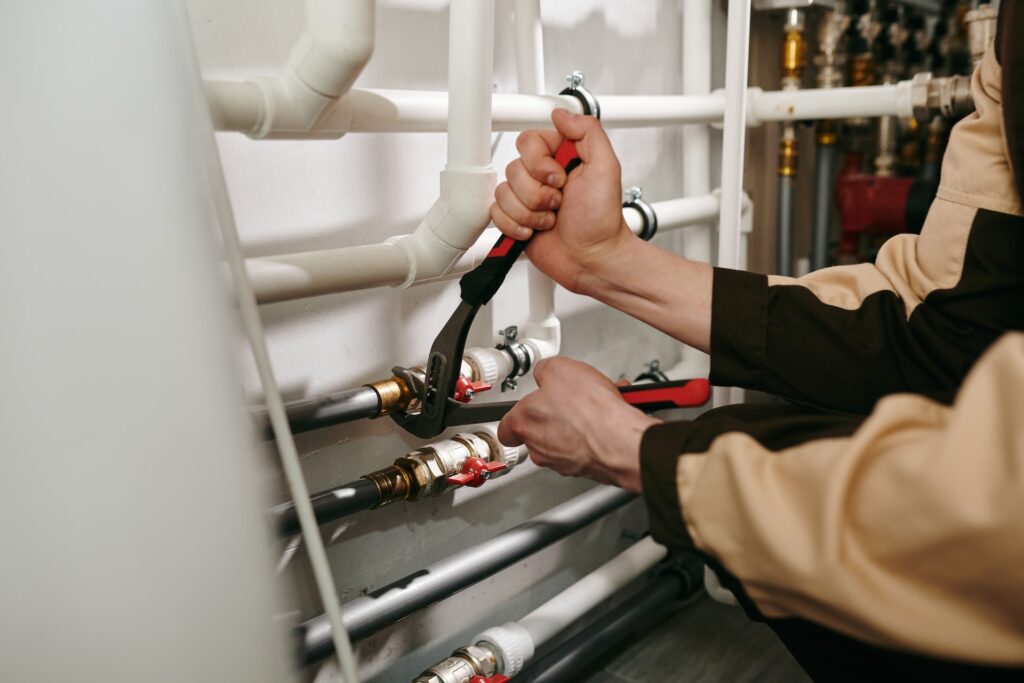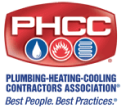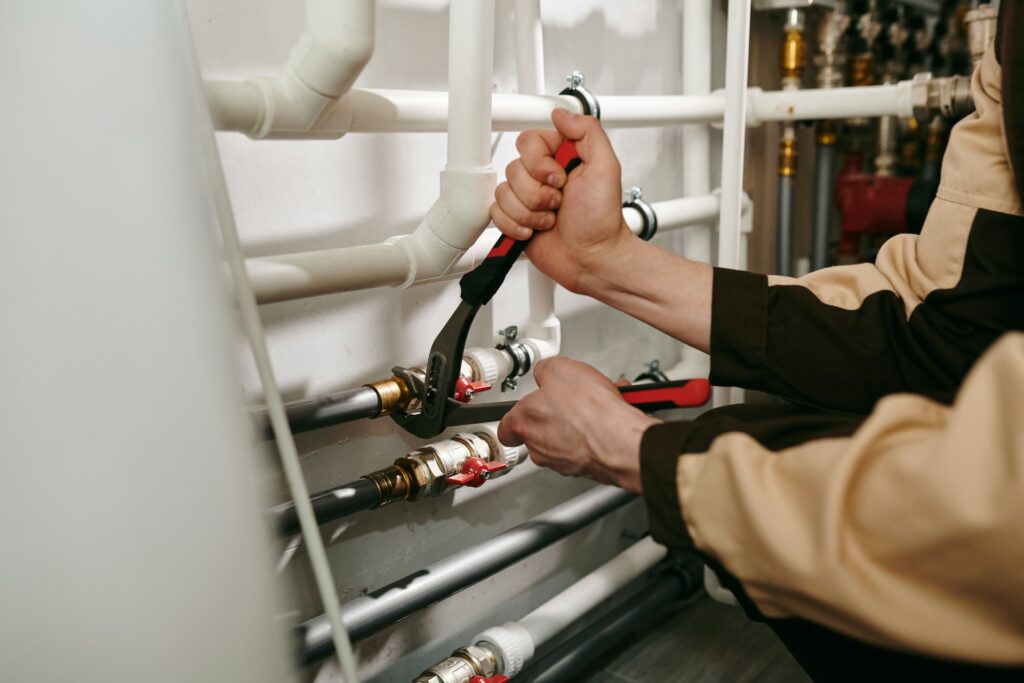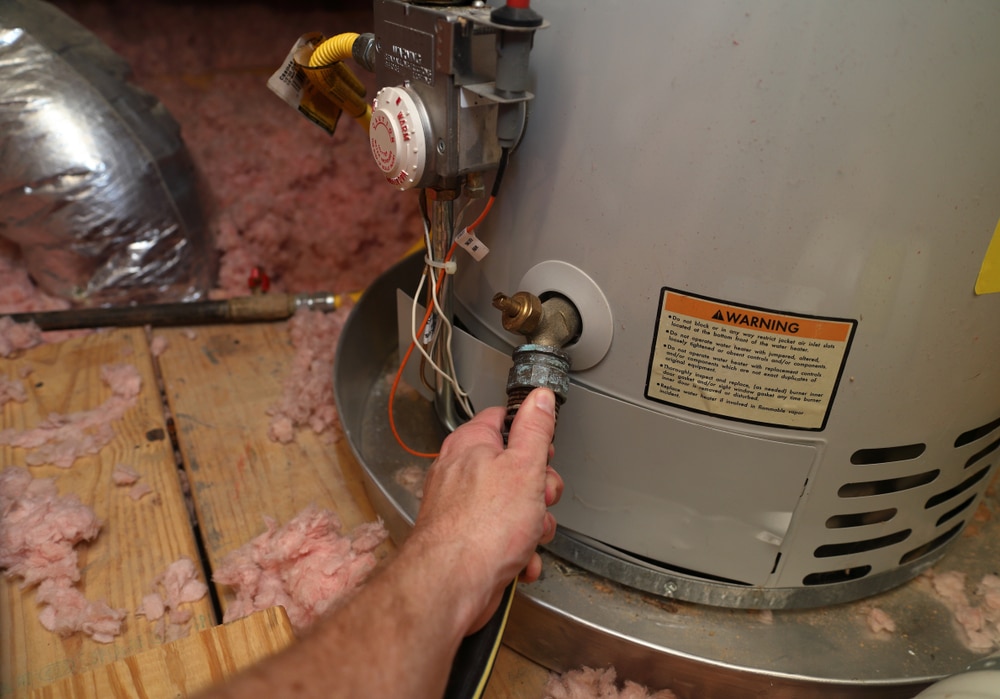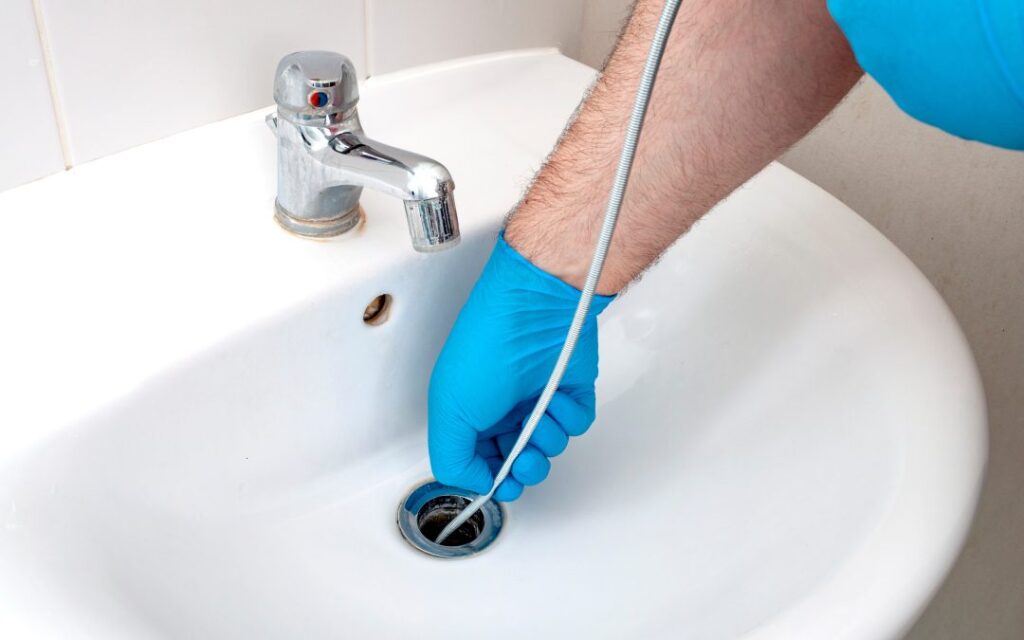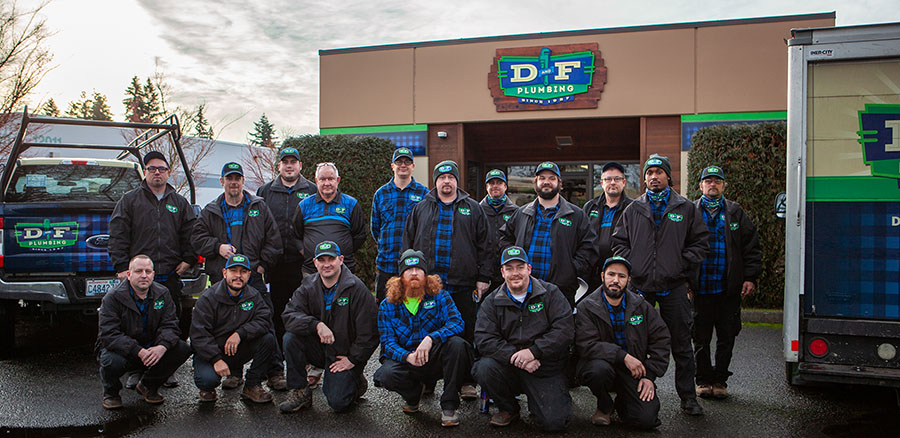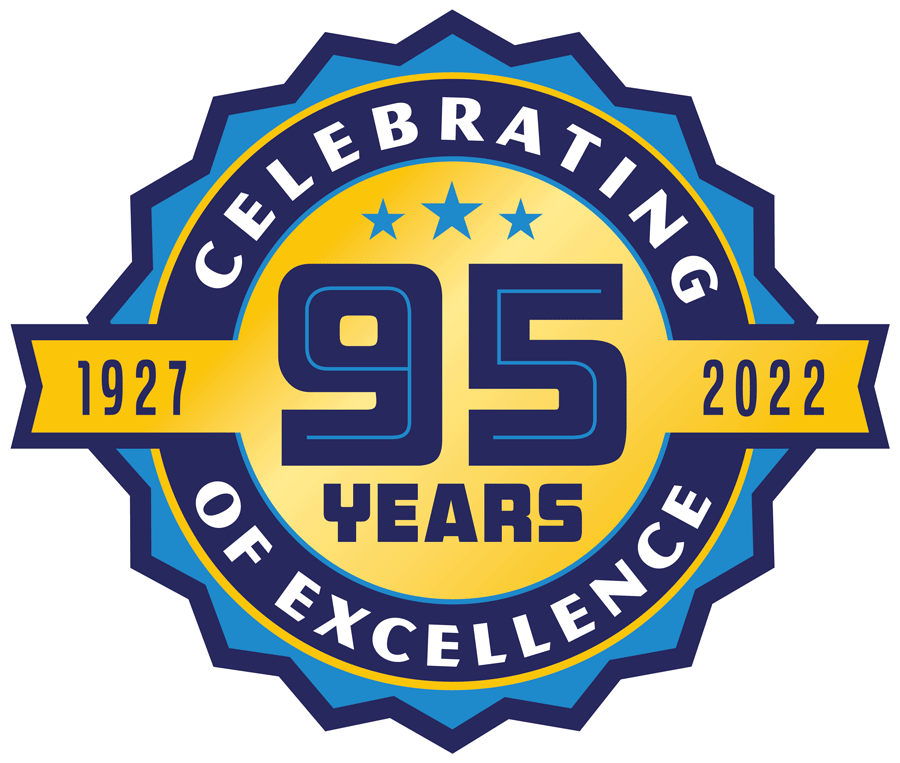Your home’s plumbing system is an intricate network of pipes, fixtures, and appliances designed to provide clean water and efficient wastewater removal. To ensure the longevity and proper functioning of this essential system, performing regular maintenance is vital. With this comprehensive guide to residential plumbing maintenance, you can learn the necessary steps to keep your home’s plumbing in top shape. Moreover, entrust your plumbing needs to the experts at D&F Plumbing, Heating and Cooling, who have been providing quality services in Portland, OR, and surrounding areas since 1927.
It’s crucial to understand the common issues that may arise in residential plumbing systems, as well as the preventative measures homeowners can take to avoid costly repairs. From inspecting your plumbing fixtures to learning the importance of regular maintenance, this article will help you make informed decisions and ensure a dependable, efficient plumbing system throughout your home. So, let’s dive into the world of residential plumbing maintenance and discover essential tips to preserve the integrity of your home’s plumbing system.
Recognizing Common Residential Plumbing Issues
Understanding the common problems that affect residential plumbing systems is the first step toward effective maintenance. Here are some issues that homeowners frequently encounter:
- Leaky Faucets: A persistent drip from faucets can lead to increased water bills and cause damage to your fixtures. Leaks usually occur due to worn-out washers or valve seats, which a professional plumber can easily replace.
- Clogged Drains: Hair, soap scum, and foreign objects can clog your drains, causing slow water flow and unpleasant smells. Regularly clean your drain stoppers to prevent blockages, and avoid using harsh chemicals that may damage the pipes.
- Running Toilets: Faulty flappers, fill valves, or an improperly adjusted float could all be causes for a constantly running toilet. If not addressed in time, this problem can result in wasted water and higher utility bills.
- Low Water Pressure: Sediment buildup, corrosion, or leaks can cause low water pressure in your home. Regular maintenance and timely repairs can prevent low water pressure from becoming a persistent issue.
Essential Residential Plumbing Maintenance Tips
- Inspect for Leaks: Regularly check your faucets, toilets, showerheads, and exposed pipes for any signs of dripping water. Quickly addressing minor leaks can prevent wasting water and costly damage to your fixtures.
- Insulate Pipes: Insulate your exposed water pipes to prevent freezing during the colder months. Frozen pipes can burst and require significant repairs. Insulating your pipes can also increase the efficiency of your hot water system and save on heating costs.
- Keep Drains Clear: Regularly clean drains to prevent blockages. Use a drain strainer to catch debris and avoid pouring grease or oil down the drain. Schedule professional drain cleaning services if you notice recurring clogs.
- Maintain Your Water Heater: Flush your water heater annually to remove sediment buildup that can cause corrosion and reduce efficiency. The Environmental Protection Agency (EPA) recommends setting your water heater’s temperature to 120°F to save energy and prevent scalding accidents.
- Test Sump Pumps: If your home has a sump pump, test it annually by pouring water into the sump pit. Ensure the pump activates, clears the water, and turns off automatically.
Importance of Regular Plumbing Inspections
Regularly scheduling professional plumbing inspections is a proactive approach to maintaining your home’s plumbing system. Here’s why regular inspections are essential:
- Detect Hidden Leaks: Professional plumbers use advanced tools to locate leaks hidden within walls, ceilings, or floors. Early detection can prevent further damage and save on costly repairs.
- Identify Corroded Pipes: Inspection can reveal corroded pipes that can lead to low water pressure and water discoloration. Timely replace rusty pipes to avoid unexpected pipe failures.
- Monitor Water Pressure: Maintaining optimal water pressure is crucial for the plumbing system’s longevity. Professional plumbers can measure the water pressure and recommend appropriate adjustments if needed.
- Evaluate Fixture Efficiency: Regular inspections ensure your plumbing fixtures are functioning efficiently, preventing water wastage and conserving energy.
- Extend System Lifespan: Proper maintenance, including regular inspections, helps extend the life of your plumbing system, saving you money in the long run.
How to Choose a Reliable Residential Plumbing Service Provider
Selecting a trustworthy and experienced plumbing service provider is essential to keep your home’s plumbing in top shape. Follow these tips to find the right plumber:
- Experience and Skills: Look for a plumber with proven experience in residential plumbing who can handle diverse issues and has the vital skills required.
- Licensing and Insurance: Ensure the plumbing provider is licensed and adequately insured to protect you from liability in case of accidents or damage during the plumbing work.
- Reputation: Seek recommendations from friends or family members, and check online reviews and testimonials to assess the plumber’s credibility.
- Customer Service: An excellent plumbing service provider should prioritize customer satisfaction — addressing your concerns and providing clear communication.
- Emergency Services: Choose a plumbing company that offers emergency services, ensuring prompt attention during unexpected plumbing issues.
Eco-Friendly Plumbing Practices for Homeowners
Adopting environmentally friendly plumbing practices can help conserve water and energy and reduce your utility bills. Some green plumbing tips include the following:
- Install WaterSense-labeled faucets and showerheads to reduce water usage without sacrificing performance.
- Opt for dual-flush or low-flow toilets to save water with each flush.
- Fix leaks promptly to prevent water wastage.
- Upgrade to an Energy Star-certified water heater to reduce energy consumption.
- Use eco-friendly drain cleaners instead of harsh chemicals to keep your drains clear and protect the environment.
By implementing these residential plumbing maintenance tips, you can maintain a reliable and efficient system in your home, avoiding costly repairs and ensuring the comfort of your family.
Your Reliable Partner for Residential Plumbing Maintenance
Keeping your home’s plumbing system in top shape is essential for the comfort, convenience, and well-being of your family. By understanding common plumbing issues, implementing essential maintenance tips, scheduling regular inspections, and choosing a reputable plumbing service provider, you can prevent costly repairs and extend the lifespan of your home’s plumbing system. For the ultimate in residential plumbing care, turn to the trusted professionals at D&F Plumbing, Heating and Cooling in Portland, OR, and surrounding areas. With decades of experience and proven expertise, our team will work tirelessly to ensure your home’s plumbing system is reliable, efficient, and eco-friendly.
Schedule your residential plumbing inspection with D&F Plumbing, Heating and Cooling today and experience the difference that a dedicated, professional team can make in preserving the integrity of your home’s plumbing infrastructure. Contact us now and invest in the well-being of your home.
